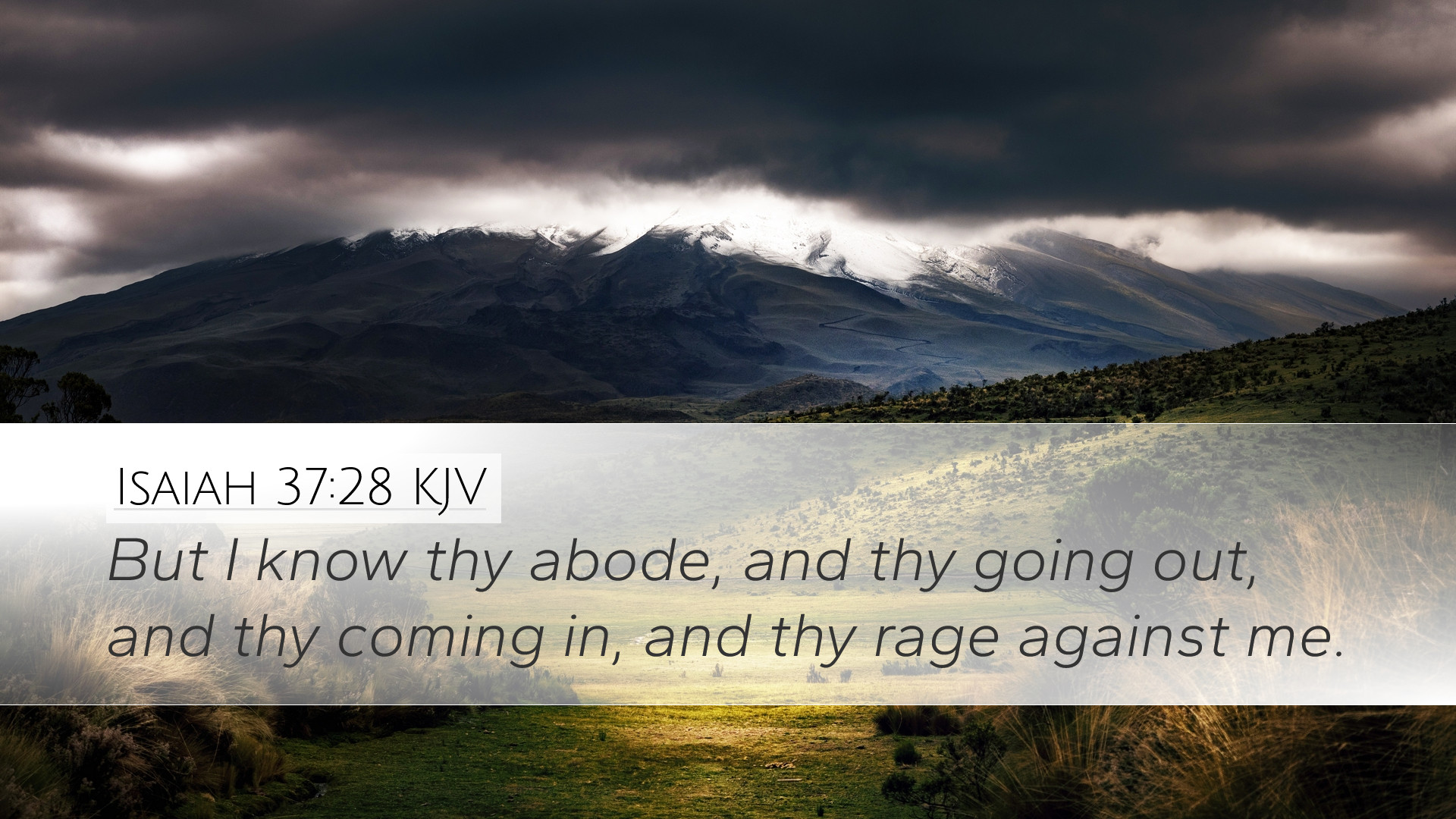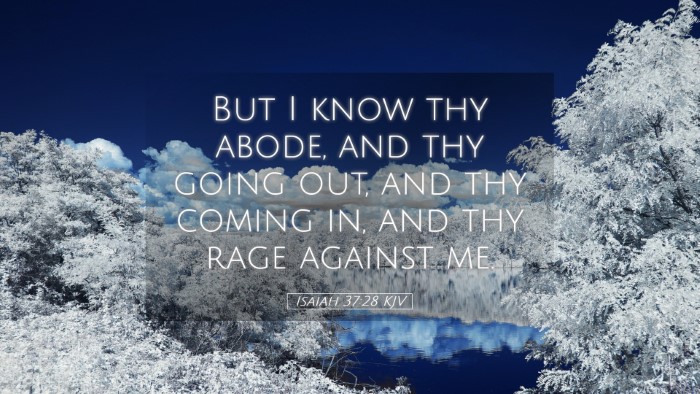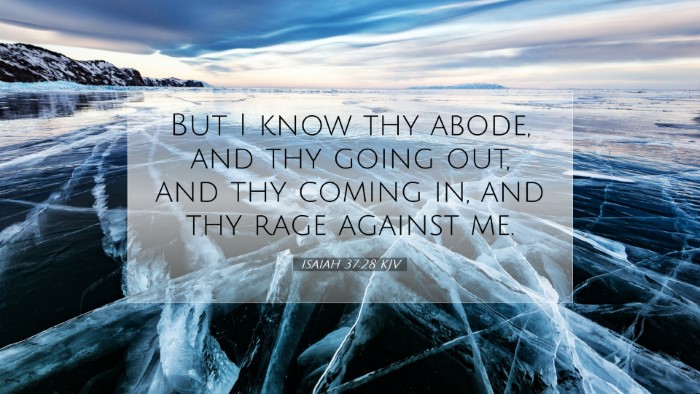Commentary on Isaiah 37:28
Verse: "But I know your dwelling place, your going out and your coming in, and your rage against me."
Contextual Background
Isaiah 37:28 is set within the broader context of the Assyrian siege of Jerusalem during the reign of King Hezekiah. This chapter reveals God's sovereignty amidst adversity and emphasizes the futility of human pride and power in opposition to divine purposes.
Textual Analysis
This verse contains significant implications about God's omniscience and His direct awareness of human actions. The phrase "I know your dwelling place" indicates a divine understanding that transcends mere observation—it underscores an intimate knowledge of one’s innermost thoughts and actions.
Insights from Public Domain Commentaries
Matthew Henry's Commentary
Matthew Henry emphasizes the sovereignty of God in this passage. He notes that God has a perfect understanding of the intentions behind human actions. He remarks on the absurdity and arrogance of Sennacherib’s threats against God’s people, highlighting that while Sennacherib appears formidable, God sees his "rage" as ultimately powerless:
- Divine Awareness: God’s knowledge encompasses all aspects of human behavior, including thoughts, motives, and plans.
- Human Pride: Sennacherib’s hubris reflects a common theme in Scripture where earthly rulers mistakenly believe they can defy divine authority.
- Assurance for the Faithful: This knowledge serves as a source of comfort for believers, assuring them that God is not distant but deeply engaged with their plight.
Albert Barnes' Notes
Albert Barnes brings attention to the inescapable nature of God’s knowledge. He argues that the phrase "I know your dwelling place" serves as a reminder that no one can escape the consequences of their actions:
- The Limits of Human Authority: Barnes illustrates that earthly powers like Assyria are transient and that their threats must be measured against God's eternal sovereignty.
- God's Response to Opposition: The "rage against me" signifies the futility of opposing the divine will. Barnes suggests that the passage speaks to those who might rise up against God’s people, illustrating that such opposition is ultimately self-defeating.
- Encouragement for Believers: The knowledge of the Lord empowers believers with the assurance that God is fully aware of their situations and will act accordingly.
Adam Clarke's Commentary
Adam Clarke highlights the personal nature of God’s engagement with the world. He notes that God's awareness is not only comprehensive but also transformative for those who recognize it:
- Personal Accountability: Clarke communicates that this verse challenges individuals to live in light of God’s knowledge, fostering a lifestyle of integrity.
- Theological Implications: The passage opens discussions on God's perfect foreknowledge and how it interacts with human free will, presenting a rich field for theological exploration.
- A Call to Humility: The acknowledgment of God's knowledge brings about a necessary humility for both leaders and nations, urging them to align their actions with God’s will.
Theological Reflections
This verse compels us to reflect on several theological themes:
- God's Omniscience: There is a profound theological assertion in God’s total comprehension of the human body and spirit. His omniscience implies that every deed, both righteous and wicked, is known to Him.
- Human Agency vs. Divine Sovereignty: The tension between human agency and God’s sovereignty is a recurrent theme in scripture. This verse can help to understand how divine providence intertwines with the daily lives of believers and non-believers alike.
- Judgment and Grace: God's awareness serves both as a warning of judgment for the defiant and an assurance of grace for the humble. It beckons individuals to a place of repentance and humility.
Practical Applications
In light of the insights gathered from the commentaries, the following applications can be drawn for modern readers:
- Living in Integrity: Understanding God's omniscience should motivate believers to reflect their knowledge of His presence in their daily lives.
- Responding to Adversity: In times of trial, such as those faced by King Hezekiah, believers can find strength in the assurance that God is fully aware and actively engaged in their circumstances.
- Echoing God's Knowledge: Pastors and leaders should cultivate an awareness of God’s perspective in their teaching, reminding congregations of God’s watchful presence.
Conclusion
Isaiah 37:28 serves as a powerful reminder of God's sovereignty and omniscience. With insights from renowned commentators like Matthew Henry, Albert Barnes, and Adam Clarke, it is evident that this passage encourages believers to embrace a life of integrity and humility before God. As we navigate challenges and opposition, we do so with the assurance that God knows our circumstances and ultimately reigns supreme over all creation.


